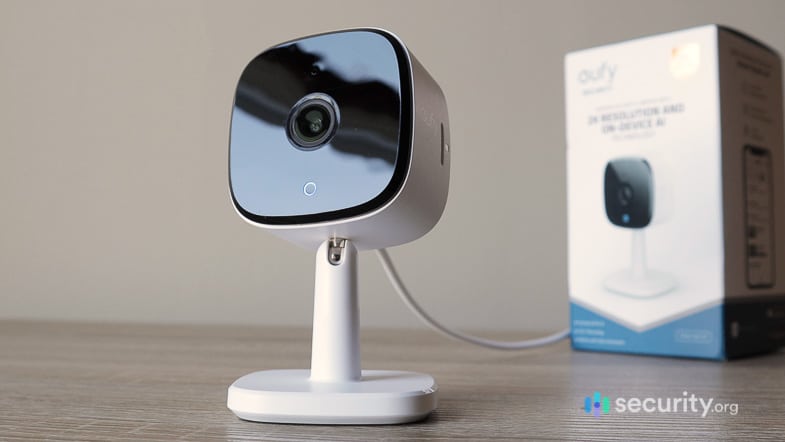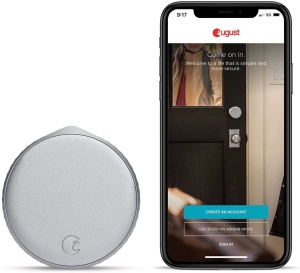
Scout security, an independent home alarm firm, was launched in 2013 through a successful crowdfunding campaign. Within 30 days of its launch, the company had exceeded its funding goal. It quickly became one of DIY security's most popular systems.
Its equipment is easily installed, affordable, and can even be controlled by a smartphone, computer, or tablet. The company also offers bundles of equipment that include professional monitoring.
The system includes a hub, a door panel and access sensors, all of which are connected via an app to your smartphone or tablet. It also includes an indoor camera and a smart door lock.
Most items can be mounted without the use of any tools using adhesive strips. The smart door lock, the video doorbell, or the indoor surveillance camera are the only items that need more hardware.

There are a variety of alarm settings, from "Home" through "Away", including "Kids Playing". The controls are patterned after IFTTT (though they don't use that platform), which means that you can create custom triggers that allow you to send text messages or emails when certain events happen.
Alexa's voice commands allow you to arm and dearm the system. It's important to remember that each command requires a spoken word code. This isn’t a problem, since it adds security to disarming, as someone can’t accidentally turn off your alarm by pulling on the cord.
Scout is also equipped with a cellular back-up and can trigger the alarm automatically if Internet connectivity is lost. This prevents your system from crashing or losing alerts and keeps you safe when you are away.
The app is very intuitive and allows you to control your system from a smartphone or tablet. You can control your system from your smartphone or tablet.
Scout offers excellent customer service, with representatives available to answer questions from 9am-6pm CST every day of the week. They offer both email and phone support, as well as a knowledge base and community forum.

Scout offers a return or exchange policy for any item you purchase. The company sends you a prepaid shipping label, and will ship a new item to you at no charge.
The company offers a 60 day money back guarantee for all equipment and hardware, as long the item remains in its original package and is not defective. All devices are covered by a 3-year warranty.
Customers who choose the professional monitoring option can have peace of mind knowing that they'll be contacted by a dedicated contact in the event of an emergency. This is a wonderful feature, especially if you have pets or children that are not at home.
You can also ask Scout to remotely unlock your door, check the status of the system, and even get a list of last-known visitors through the doorbell camera. The app also makes it possible to grant access to your home through your smartphone, allowing you to keep an eye on who's in your house without having to leave the comfort of your own couch.
FAQ
Which home security system offers the most features?
Ring Video Doorbell Pro offers the most features of all home security systems that we tested. It allows you to see who's at your front door, speak with them on your phone and record videos. It comes with a cloud storage service that allows you to save all recordings.
Which home security system is better? Home security cameras or security systems?
Home security systems work better than home security cameras, as they can detect sounds and movements even when no one is in the area where the system is installed. On the other side, home security cameras are much cheaper than home alarm systems and can be easily mounted to windows and doors.
How much does an effective home security system set you back?
A home security system is about $2,500. This might seem like a lot, but it's really quite inexpensive when you consider the peace of mind that comes with having a safe and secure place to live.
Statistics
- Related questionsHome security systems that are 100% DIY (safewise.com)
- Cove sets you free without punishing penalties and fees, unlike other security solutions that charge 75% to 100% of your remaining contract. (safewise.com)
- Most home security companies will charge you around 75% of the remaining term of your contract if you cancel early—and some require 100%.Related questionsWhat type of contract length can I expect from security providers?Home security system cancellation (safewise.com)
- Most home security companies will charge you around 75% of the remaining term of your contract if you cancel early—and some require 100%.Related questionsWhat type of contract length can I expect from security providers?Home security system cancellation (safewise.com)
External Links
How To
How to Install Home Security Systems
A home security alarm is a device that monitors the property and alerts you in case of any suspicious activity. It could be a motion sensor, doorbell camera, smoke detector, fire alarm, flood alert, carbon monoxide detector, burglar alarm, etc. A home security system is usually composed of one or several sensors (e.g. motion detectors), that send signals when there's movement or sound. The signals are then sent over to a control box where they are monitored and recorded. If something goes wrong, like someone breaking in to your house, the control panels sends an alert to your phone or tablet, your computer, or voice assistant. The control panel will notify you immediately so that you can take corrective action.
Selecting the right sensors for your home is an important step in installing a home security alarm system. There are two main types, passive and active. Passive sensors aren't powered by batteries. They just detect sounds and vibrations in their environment. They include things like doorbells, sirens, and buzzers. Active sensors transmit data by using electricity. This type of sensor can be found in cameras and motion sensors.
There are many types of sensors on the market today. Each brand has its own pros and disadvantages. For example, some sensors are weatherproof, while others aren't. Some come with built-in speakers so you can hear them even if they're outside. Some work only indoors. Some are basic while others offer advanced features, such as night vision.
After selecting the right sensors for your property and deciding on a manufacturer, you will want to make a selection. This will help you ensure your sensors work well together. You should find plenty of choices at your local hardware shop.
Once you have selected a brand of sensor, you need to decide the number you wish to buy. Depending upon whether they live alone or in a group, most people begin with one or two sensors. If you are planning to add sensors later on, you may consider purchasing additional sensors.
Next, decide where you want the sensors to go. Do you want them close to doors or windows? Or would you rather have them hidden? Before you put them anywhere on your property make sure you get permission. Also, make sure they won't interfere with anything else, like electrical outlets.
Once you have determined where your sensors should be placed, you will need to find a way to connect them with your control panel. A power adapter or battery package may be required depending on your setup. Once everything is in place, you can start to monitor your property.